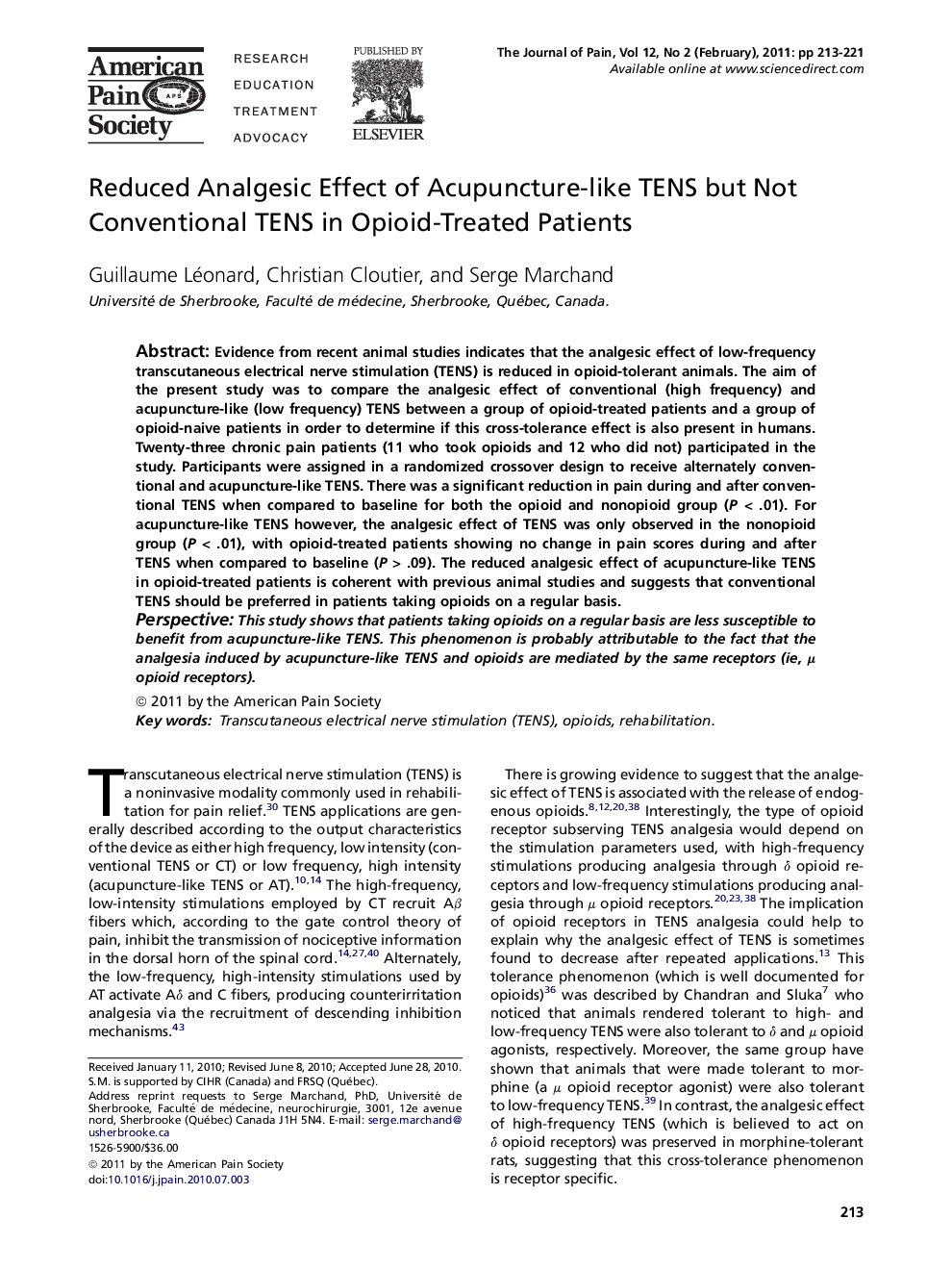| Article ID | Journal | Published Year | Pages | File Type |
|---|---|---|---|---|
| 2732499 | The Journal of Pain | 2011 | 9 Pages |
Evidence from recent animal studies indicates that the analgesic effect of low-frequency transcutaneous electrical nerve stimulation (TENS) is reduced in opioid-tolerant animals. The aim of the present study was to compare the analgesic effect of conventional (high frequency) and acupuncture-like (low frequency) TENS between a group of opioid-treated patients and a group of opioid-naive patients in order to determine if this cross-tolerance effect is also present in humans. Twenty-three chronic pain patients (11 who took opioids and 12 who did not) participated in the study. Participants were assigned in a randomized crossover design to receive alternately conventional and acupuncture-like TENS. There was a significant reduction in pain during and after conventional TENS when compared to baseline for both the opioid and nonopioid group (P < .01). For acupuncture-like TENS however, the analgesic effect of TENS was only observed in the nonopioid group (P < .01), with opioid-treated patients showing no change in pain scores during and after TENS when compared to baseline (P > .09). The reduced analgesic effect of acupuncture-like TENS in opioid-treated patients is coherent with previous animal studies and suggests that conventional TENS should be preferred in patients taking opioids on a regular basis.PerspectiveThis study shows that patients taking opioids on a regular basis are less susceptible to benefit from acupuncture-like TENS. This phenomenon is probably attributable to the fact that the analgesia induced by acupuncture-like TENS and opioids are mediated by the same receptors (ie, μ opioid receptors).
